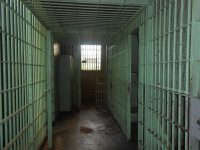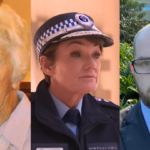Should Prisoners be Forced to Speak English?

NSW Attorney General Brad Hazzard has announced new restrictions for a number of prisoners in NSW who are considered to be high risk due to their alleged links with terrorism. These restrictions mean that the inmates are no longer allowed to speak in Arabic, and must have all their written and spoken communications monitored.
According to Mr Hazzard, the restrictions are intended to prevent inmates from inciting terrorism from within prison, or co-ordinating or planning terrorism-related activities. These restrictions have been widely criticised as a breach of prisoner rights and a desperate attempt to win votes in the lead-up to the state election, especially given that the state government has acknowledged that inmates in NSW provide no known terrorist threat.
What are the language restrictions?
The language restrictions limit the inmates’ ability to communicate in Arabic and state that they must speak English when communicating with lawyers and their families except in the presence of an interpreter. They include stipulations that:
- Prison visits have to be conducted in English. Another language can be spoken with permission from the Corrective Services Commissioner but in this event there needs to be an interpreter present.
- Letters and phone calls must be in English unless special permission is granted, and they will be monitored.
- No visitors are allowed unless they have been approved by the Commissioner and vetted carefully.
- All conversations have to take place within earshot of a corrective officer unless the Commissioner grants an exemption.
The restrictions apply to 13 inmates designated extreme high risk, including a number of inmates on remand for allegedly being part of the Pendennis terrorism cell. All the inmates affected by the restrictions are Muslim and speak Arabic, and they are all currently residing at Goulburn’s Supermax facility.
Under the restrictions, if languages other than English are spoken, corrective services officers will have the power to eject visitors. Exceptions may be made for relatives who are unable to speak English, such as elderly family members, but only if an interpreter is present, providing an immediate translation of the conversation.
The justification for the decision is to prevent extremist messages being passed around and out of prison, and reducing the risk of people becoming radicalised while in custody and then going out to commit terrorism offences. According to Immigration Minister Peter Dutton, the move is a “prudent and timely step.”
Are language restrictions a breach of prisoner rights?
In spite of Mr Dutton’s belief that the restrictions won’t breach prisoner rights, many Muslim and Arabic organisations, as well as inmates’ families, consider the restrictions outrageous and insulting as well as a direct threat to prisoners’ rights of self-expression and even religious worship.
Some of the inmates’ families have reported that the inmates affected have gone on hunger strikes as a way of protesting against the restrictions. They are also allegedly refusing to leave their cells or accept visitors.
Banning inmates and their families and friends from speaking Arabic serves to discriminate further against an already marginilised and demonised group, and fuel the misconception that those speaking Arabic must have something to do with terrorism. Although authorities have strenuously denied that they are discriminating against Arabic speakers and all other languages apart from English are also restricted, the inmates facing the restrictions are all from Arabic-speaking backgrounds.
It has been alleged that a number of the inmates affected by the restrictions are on remand and are yet to be convicted of any offence. It would appear from this that a harsh penalty for terrorism in Australia applies even for those who are not convicted of anything, thereby undermining the presumption of innocence.
Increasing isolation
For inmates who may already have limited English, being forced to speak only in a language they are not familiar with makes communicating very difficult and only serves to increase any feelings of isolation. The move is also likely to create problems for inmates when communicating with friends and family members who may not be able to speak English particularly well, or read letters written in English.
The restrictions have the power to effectively cut inmates off from their families and social support networks as well as increasing any feelings of isolation and resentment they may be experiencing. The restrictions in the Supermax facility are already tight, with inmates shackled whenever they are being moved, and forced to make phone calls from inside a wire cage.
It has been suggested that if Corrective Services wants to monitor the communications of people from more ethnically diverse backgrounds, they would be better off doing this by employing more culturally and linguistically diverse people rather than by removing the basic rights of those in custody.






